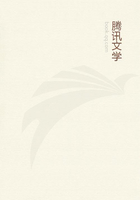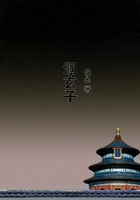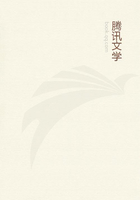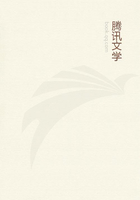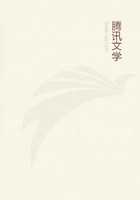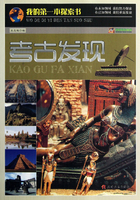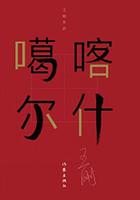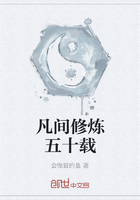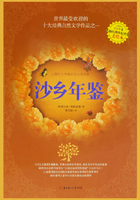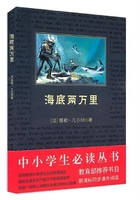There were some three hundred cases of epilepsy, paralysis, St.Vitus's dance, and wounds of nerves.On one side of me lay a poor fellow, a Dane, who had the same burning neuralgia with which I once suffered, and which I now learned was only too common.This man had become hysterical from pain.He carried a sponge in his pocket, and a bottle of water in one hand, with which he constantly wetted the burning hand.Every sound increased his torture, and he even poured water into his boots to keep himself from feeling too sensibly the rough friction of his soles when walking.Like him, I was greatly eased by having small doses of morphia injected under the skin of my shoulder with a hollow needle fitted to a syringe.
As I improved under the morphia treatment, I began to be disturbed by the horrible variety of suffering about me.One man walked sideways; there was one who could not smell; another was dumb from an explosion.
In fact, every one had his own abnormal peculiarity.Near me was a strange case of palsy of the muscles called rhomboids, whose office it is to hold down the shoulder-blades flat on the back during the motions of the arms, which, in themselves, were strong enough.When, however, he lifted these members, the shoulder-blades stood out from the back like wings, and got him the sobriquet of the ``Angel.'' In my ward were also the cases of fits, which very much annoyed me, as upon any great change in the weather it was common to have a dozen convulsions in view at once.Dr.Neek, one of our physicians, told me that on one occasion a hundred and fifty fits took place within thirty-six hours.On my complaining of these sights, whence I alone could not fly, I was placed in the paralytic and wound ward, which I found much more pleasant.
A month of skilful treatment eased me entirely of my aches, and I then began to experience certain curious feelings, upon which, having nothing to do and nothing to do anything with, I reflected a good deal.
It was a good while before I could correctly explain to my own satisfaction the phenomena which at this time I was called upon to observe.By the various operations already described I had lost about four fifths of my weight.As a consequence of this Iate much less than usual, and could scarcely have consumed the ration of a soldier.I slept also but little; for, as sleep is the repose of the brain, made necessary by the waste of its tissues during thought and voluntary movement, and as this latter did not exist in my case, I needed only that rest which was necessary to repair such exhaustion of the nerve-centers as was induced by thinking and the automatic movements of the viscera.
I observed at this time also that my heart, in place of beating, as it once did, seventy-eight in the minute, pulsated only forty-five times in this interval--a fact to be easily explained by the perfect quiescence to which I was reduced, and the consequent absence of that healthy and constant stimulus to the muscles of the heart which exercise occasions.
Notwithstanding these drawbacks, my physical health was good, which, I confess, surprised me, for this among other reasons:
It is said that a burn of two thirds of the surface destroys life, because then all the excretory matters which this portion of the glands of the skin evolved are thrown upon the blood, and poison the man, just as happens in an animal whose skin the physiologist has varnished, so as in this way to destroy its function.Yet here was I, having lost at least a third of my skin, and apparently none the worse for it.
Still more remarkable, however, were the psychical changes which I now began to perceive.
I found to my horror that at times I
was less conscious of myself, of my own existence, than used to be the case.This sensation was so novel that at first it quite bewildered me.I felt like asking some one constantly if I were really George Dedlow or not; but, well aware how absurd I should seem after such a question, I refrained from speaking of my case, and strove more keenly to analyze my feelings.At times the conviction of my want of being myself was overwhelming and most painful.It was, as well as I can describe it, a deficiency in the egoistic sentiment of individuality.About one half of the sensitive surface of my skin was gone, and thus much of relation to the outer world destroyed.As a consequence, a large part of the receptive central organs must be out of employ, and, like other idle things, degenerating rapidly.Moreover, all the great central ganglia, which give rise to movements in the limbs, were also eternally at rest.Thus one half of me was absent or functionally dead.This set me to thinking how much a man might lose and yet live.If I were unhappy enough to survive, I might part with my spleen at least, as many a dog has done, and grown fat afterwards.The other organs with which we breathe and circulate the blood would be essential; so also would the liver;but at least half of the intestines might be dispensed with, and of course all of the limbs.
And as to the nervous system, the only parts really necessary to life are a few small ganglia.
Were the rest absent or inactive, we should have a man reduced, as it were, to the lowest terms, and leading an almost vegetative existence.Would such a being, I asked myself, possess the sense of individuality in its usual completeness, even if his organs of sensation remained, and he were capable of consciousness?
Of course, without them, he could not have it any more than a dahlia or a tulip.
But with them--how then? I concluded that it would be at a minimum, and that, if utter loss of relation to the outer world were capable of destroying a man's consciousness of himself, the destruction of half of his sensitive surfaces might well occasion, in a less degree, a like result, and so diminish his sense of individual existence.
I thus reached the conclusion that a man is not his brain, or any one part of it, but all of his economy, and that to lose any part must lessen this sense of his own existence.

